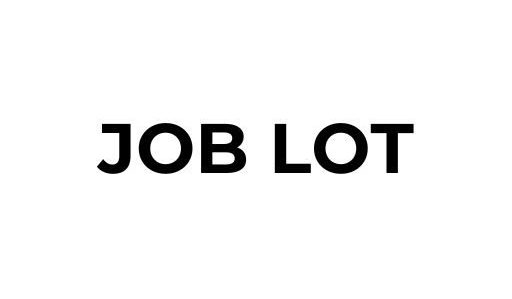- PocketSmith Budgeting App Review for 2025
- Naughty Dog was sold to Sony because the “stress of ballooning budgets was enormous” says co-founder
- Money rules to help with budgeting, investing, retirement in Arizona
- Could Trump’s Budgeting Approach Improve The U.S. Fiscal Outlook?
- U.S. Salary Budgets Expected to Remain Static in 2025
As consumers enter the new year and make resolutions about what they want to do with their money, certified financial planners say it’s important to consider possible economic changes when creating goals.
The Federal Reserve is expected to continue interest rate cuts in the new year, albeit at a slower pace. There is also a new administration entering office in January, and their fiscal policies could affect the economy and Americans’ personal finances.
Investopedia spoke with certified financial planners about what the new year may bring for consumers’ finances and how they should prepare for 2025. The quotes have been edited for brevity and clarity.
How should consumers prepare their budget for the new year?
“While inflation has moderated in 2024, it’s still prudent to budget for potential increases in essential expenses like groceries, utilities and healthcare. Track your spending in these categories and consider including a 3%–5% buffer in your 2025 budget to account for any unexpected rises in costs.”
Xem thêm : Could Trump’s Budgeting Approach Improve The U.S. Fiscal Outlook?
-Nicky Amore, a certified financial planner in Chicago
“Use these last weeks of the year to fine-tune your financial foundation. Double-check your contributions to tax-advantaged accounts (like 401(k)s, HSAs, or IRAs), confirm you’re on track for any financial goals, and plan ahead for potential tax changes or opportunities in the new year. Small adjustments now can lead to big savings later.”
-Akeiva Ellis, certified financial planner in Boston
“Setting a resolution, especially a money resolution, before the new year actually rolls over is super important because then you’re already setting the groundwork. So once that calendar rolls over, I’m ready to institute these new habits… Log into that credit card statement. Most credit cards will now give you a summary of, ‘Hey, here’s how much you’ve spent this year. Here are your biggest categories.’
Schedule check-ins. Habits take time to form. Be kind to yourself, but make that effort to actually form them. So many resolutions get dropped within the first month and a half; don’t let yourself [do that]. Set yourself up for success.”
-Sarah Paulson, certified financial planner in Wisconsin
How could the Federal Reserve rate cuts affect personal finances?
“The Federal Reserve has hinted at cutting interest rates, which could lower borrowing costs for mortgages, car loans and business financing. However, rate cuts may also reduce interest on savings accounts and fixed-income investments. If you’re planning to refinance debt or make significant purchases, 2025 might be a good time.”
-Chad Olivier, certified financial planner in Louisiana
“I know a lot of people think with the Fed cutting rates, we’re going to see a drop in mortgage rates. They’re not that closely tied together that you’re going to see a complete correlation between a rate cut and a mortgage rate. So if that’s what you’re waiting for before buying a house, you’re ready to pull the trigger, and you’re just waiting for a Fed rate cut, I don’t recommend going with that situation.”
-Paulson
“While it’s true that rate cuts have started, it doesn’t mean we’ll see immediate relief in borrowing costs or everyday expenses. Refinancing debt or making big financial moves tied to lower rates might not be fruitful until later in the year. For now, focus on keeping your budget tight and building a cushion for unexpected expenses. Inflation is cooling, but prices remain high for essentials, so a solid spending plan remains crucial.”
-Ellis
How could the new administration affect people’s finances, and how should they prepare?
“Going into the new administration, we believe that there is a possibility of the tax cuts not going away next year… But the tariffs [on] goods coming in could hamper some of this growth that we’re looking to possibly happen. If it does, then that could push us into a recession.”
-Olivier
“The incoming administration and economic optimism have already spurred an increase in job availability. If you’ve been considering a career move, now might be a great time to dust off your resume and explore higher-paying or more fulfilling opportunities. That said, don’t neglect your emergency fund. Even in a strong job market, having three to six months of expenses saved offers invaluable peace of mind.”
-Ellis
“If [the new administration] go as big and dramatic as they said they would on the campaign trail, we’re going to see huge price shocks across everything that we buy. Anything coming in from China could double in price easily, which would be really hard. My hope and my guess is that we’re not going to see anything quite as dramatic as that, but other countries that we import things from are still going to be paying attention and watching. They might preemptively raise some prices to make sure that they are ready to go and aren’t going to cut any of their own profits from selling to American consumers.”
-Paulson
What should savers look out for in 2025?
“Unfortunately, the higher interest rates on CDs, money markets, and savings accounts will probably be the first thing that you see drop. You’ve been getting pretty good interest rates on those types of investments, and those are the ones that I’m going to say that are probably affected first [by Fed interest rate cuts].”
-Olivier
“With the uncertain economy, it’s essential to reevaluate your emergency fund. Aim to save three to six months’ worth of living expenses. For other savings, it’s worth exploring alternatives like CDs or Treasury securities to maintain returns in a lower-rate environment.”
-Amore
Nguồn: https://joblot.lol
Danh mục: News
